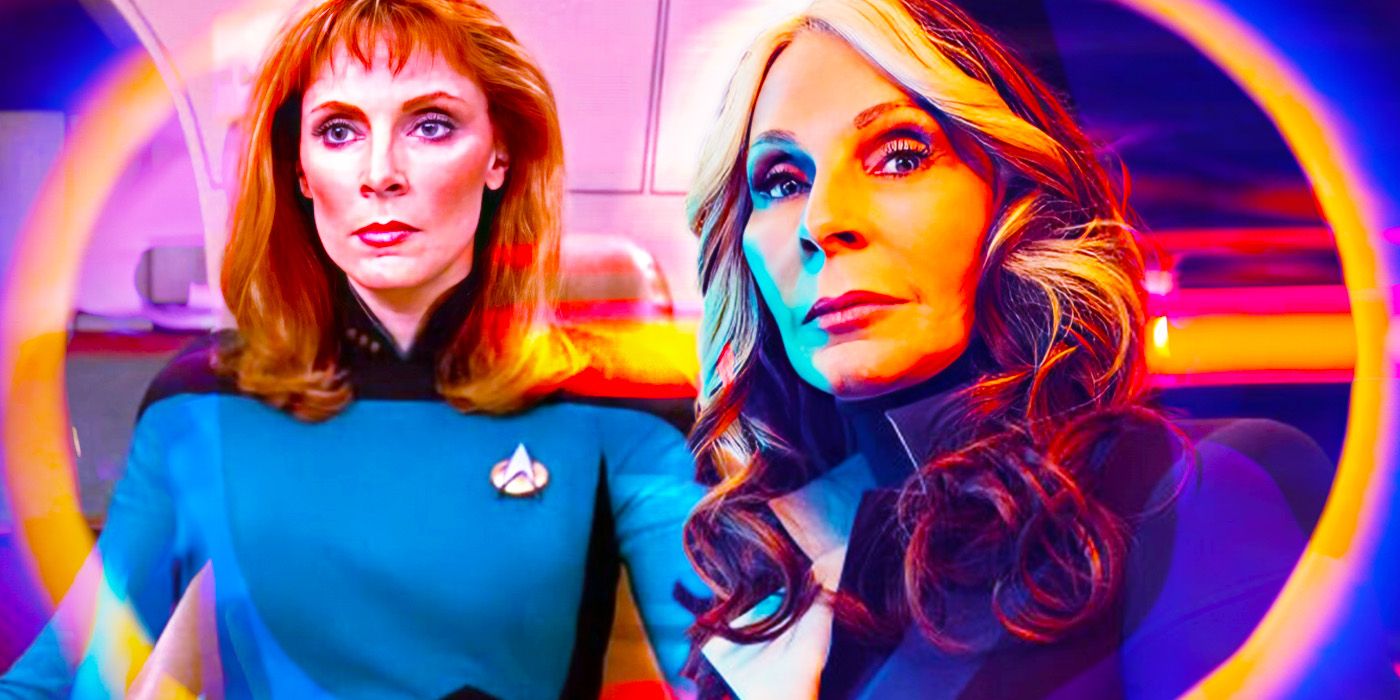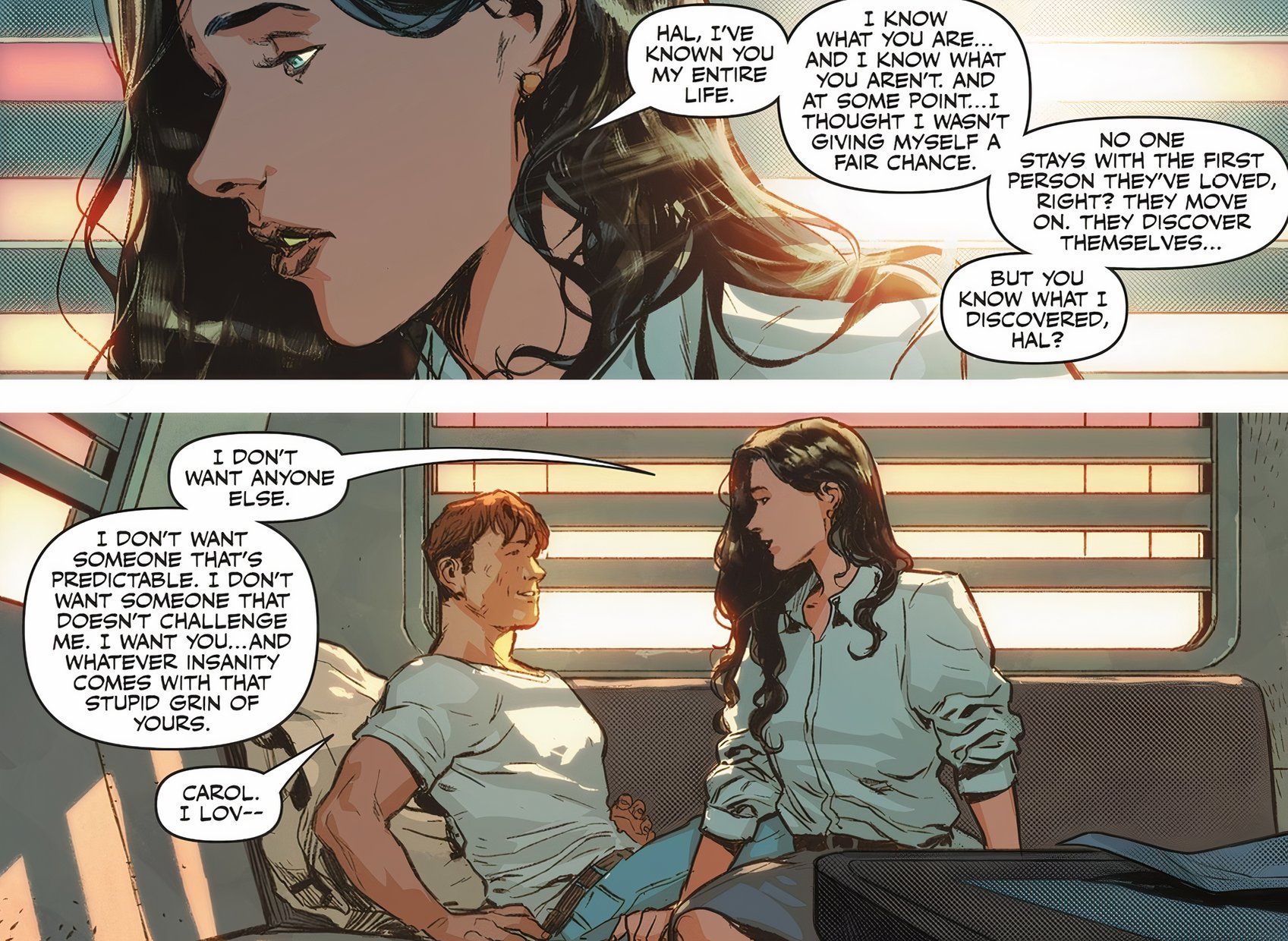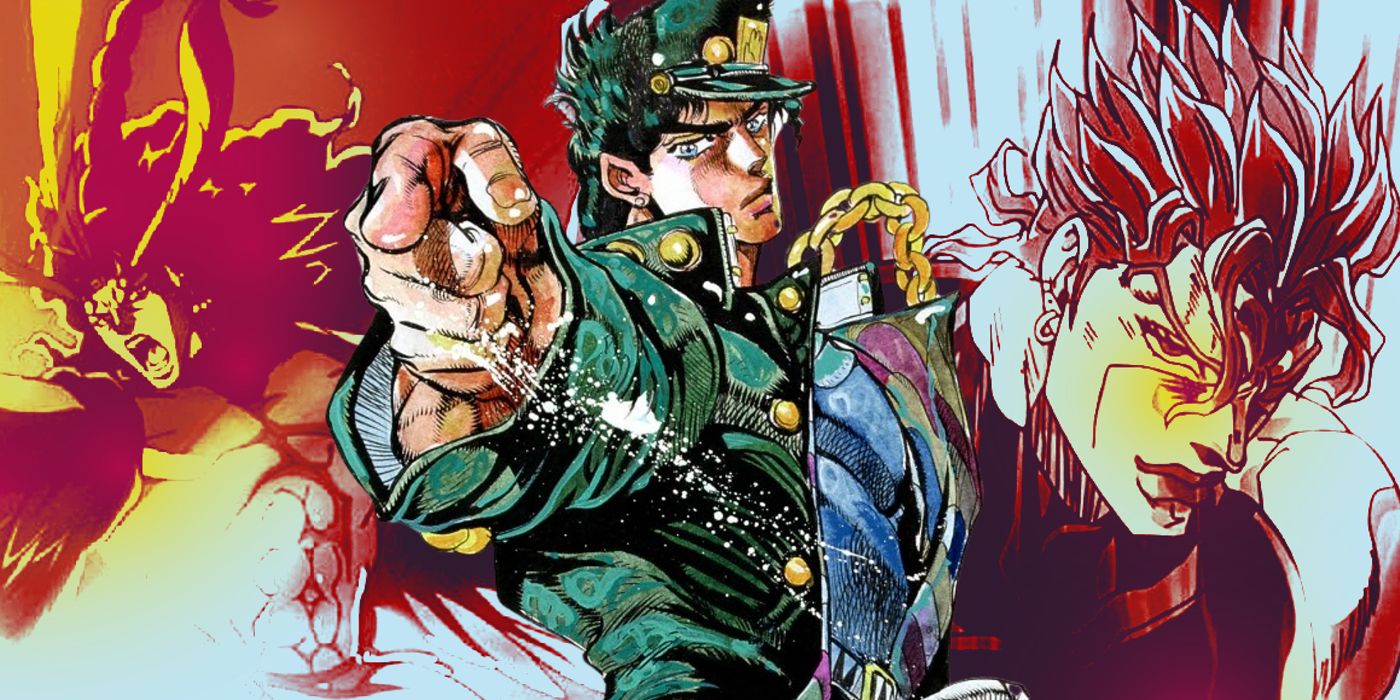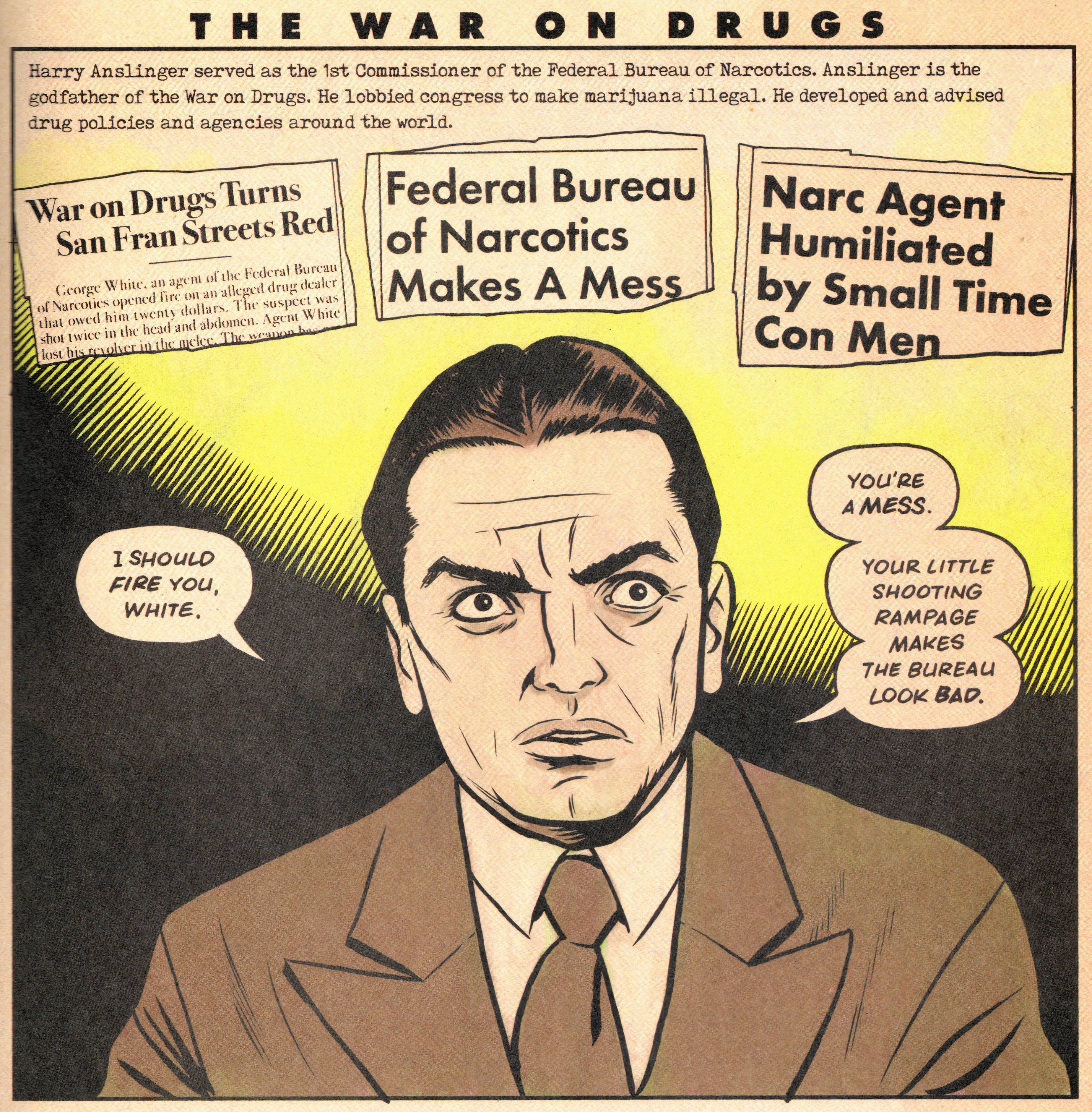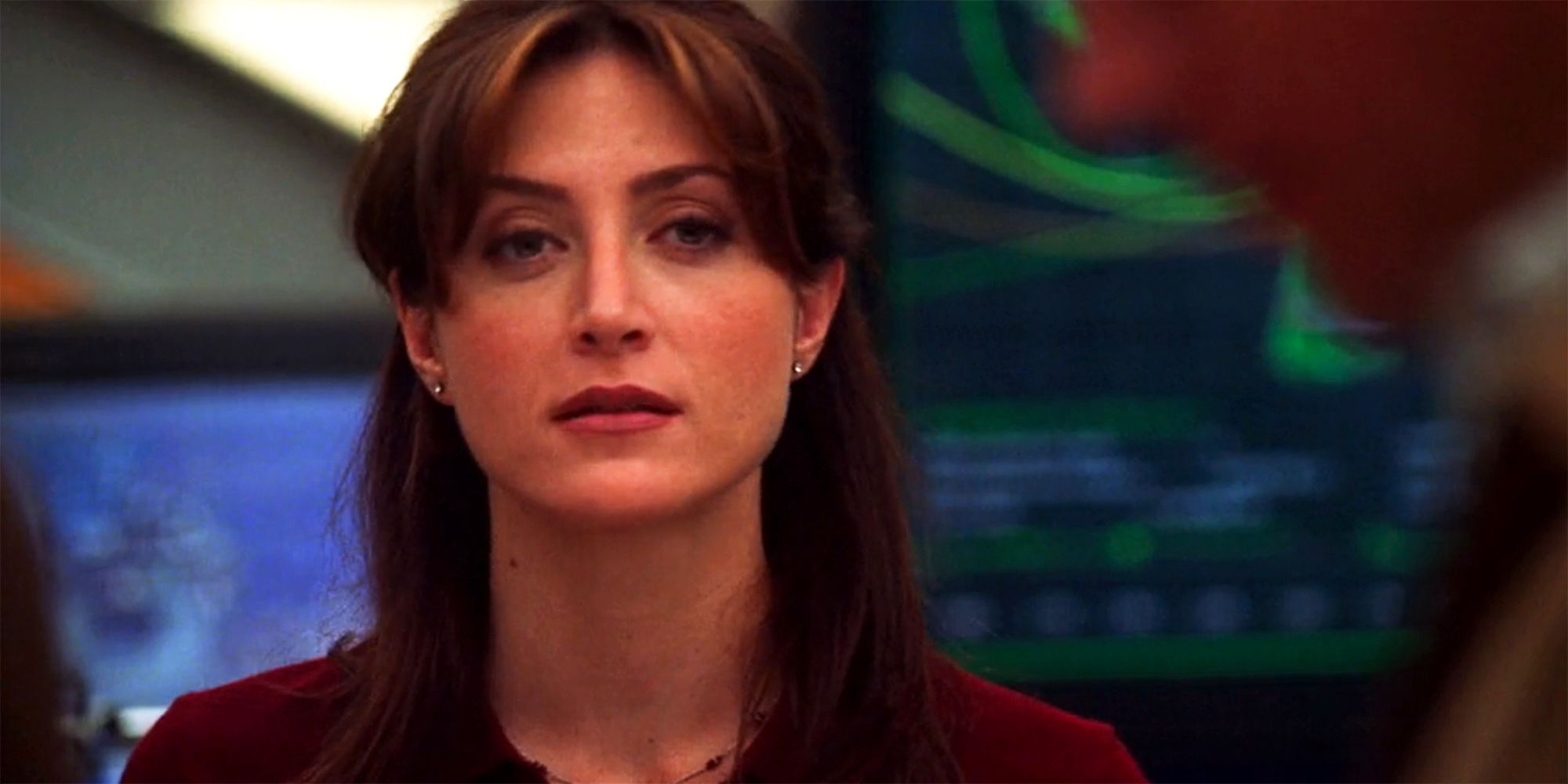The Marvel Universe is teaming with powerful beings, but almost none can rival the sheer expansiveness of the Phoenix Force. Originally introduced in Uncanny X-Men #101 and created by Chris Claremont and Dave Cockrum, the Phoenix Force is a being that looms large in X-Men lore. It is closely associated with Jean Grey, who was its host at the time of its introduction, later spanning the iconic Dark Phoenix Saga in Uncanny X-Men #129-138. The Phoenix Force brought out the full strength of Jean’s telepathic and telekinetic abilities but left her morally corrupted and almost unrecognizable to her fellow X-Men.
With regards to what the Phoenix Force actually is, along with the extent of its powers, it is a cosmic entity that defies both space and time. It relies on hosts, and feeds off of the life force of future generations in the universe, making it almost limitlessly powerful. Not bound by the laws of physics, the Phoenix Force is capable of destroying entire timelines and realities. At its very essence, it is a representation of all life that has existed and will exist in the universe. In Classic X-Men #8, (written by Chris Claremont, inks and pencils by John Bolton, letters by Tom Orzechowski, colors by Glynis Oliver) it describes itself to Jean as “The sum and substance of life and hope and dreams.”
Though the existence of the Phoenix Force first originates with Jean Grey in its publication history, it has gone on to find hosts in a multitude of different characters, including Cyclops, Emma Frost, Professor X, Frank Castle’s Ghost Rider, Magik, Namor the Sub-Mariner, and most recently, Moon Knight. Considering that the Force first bonded with Jean after she sacrificed herself in space by flying into a solar flare, it has special significance for her character because it represented her devotion to her team. Additionally, her turn towards a destructive sense of evil in the Dark Phoenix Saga was unique to her individual power set and personality, marking a turn in X-Men comics where even the best of heroes could be turned over to evil. As such, it could be argued that the Phoenix Force has lost part of its significance because it has resurfaced so many times outside the Dark Phoenix Saga.
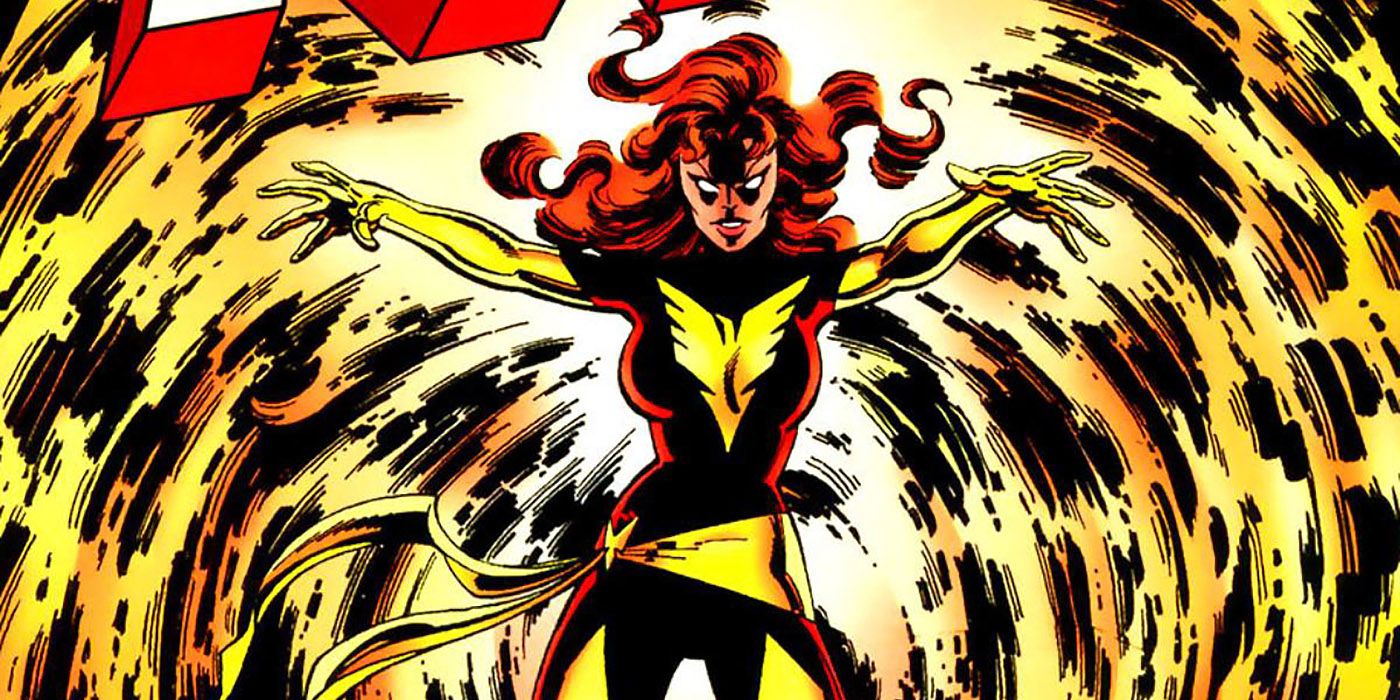
The Dark Phoenix Saga showed how extreme amounts of power, in any form, corrupts. Simply empowering a character with it without regard for its original use betrays the very essence of what it is: a cannibalistic entity that shows the flip side of superhero power. The genre has a tendency to fixate on characters’ power levels, and the point of the Dark Phoenix Saga was to show how immensely bad that can be in practice, because power does not exist in a vacuum. Power almost always comes at the expense of something or someone, and it is this central idea that pushed the boundaries of the superhero genre at the time of the Dark Phoenix Saga’s publication. Therefore, the Phoenix Force loses much of its narrative power when it is only used to supplement a character’s braun.
The Phoenix Force’s Power Is Cannibalistic.
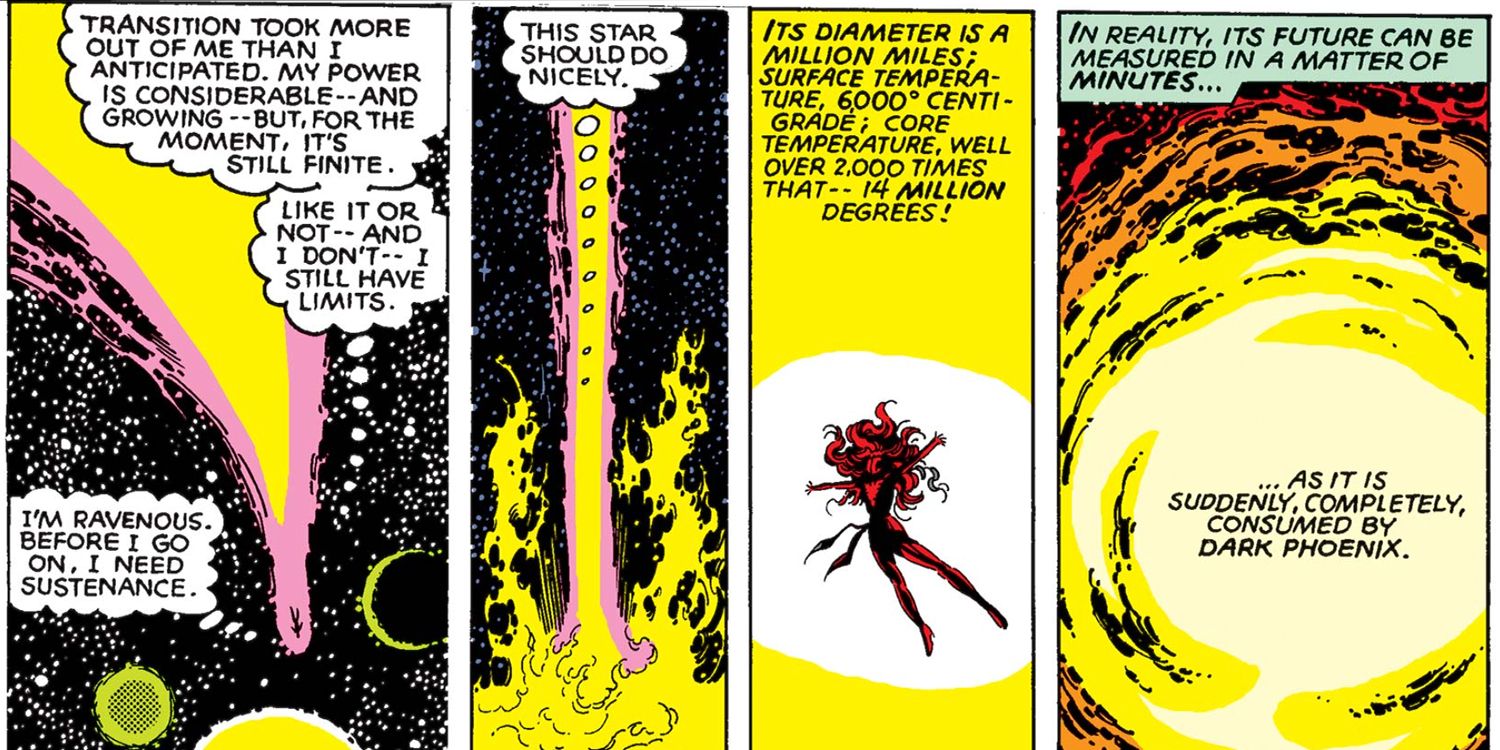
One of the scariest aspects about the Phoenix Force is that it requires a massive amount of energy in order to be sustained. This played out to horrifying effect in Uncanny X-Men #135, where Jean consumed the power of a star in order to satiate the hunger of the Phoenix Force. With a creative team of Chris Claremont, artist John Byrne, inker Terry Austin, letterer Tom Orzechowski, and colorist Bob Sharen, the issue showed how Jean’s actions resulted in the deaths of five billion people living on planets orbiting that star. This episode illustrates the cannibalistic nature of the Phoenix Force: one that is the force of life itself, but relies on the destruction of it in order to exist.
This adverse effect of the Phoenix Force is a revolutionary idea in superhero comics, and is one of the reasons why the Phoenix Force is such a special entity to begin with. Most heroes’ powers originate from themselves as individuals. For instance, Cyclops only needs to rely on himself and his mutation in order to generate his powerful optic blasts. Because most heroes are capable of generating their own displays of their superpowers, it created a precedent in superhero comics where readers became accustomed to admiring the individual feats of the heroes they read about each week. When watching Spider-Man swing from building to building, for instance, readers did not have to worry about where the source of their heroes’ powers came from.
Dark Phoenix, on the other hand, ripped open this safe aspect about superhero comics, because power no longer existed on an individual, self-contained basis. It was hungry, as was shown in Uncanny X-Men #135, and it thrived on the energy of other beings in the universe. This was a take on power that was previously unseen because it offered a concerning look at the implications of extremely powerful superheroes.
The Phoenix Force Is The Antithesis To The X-Men.
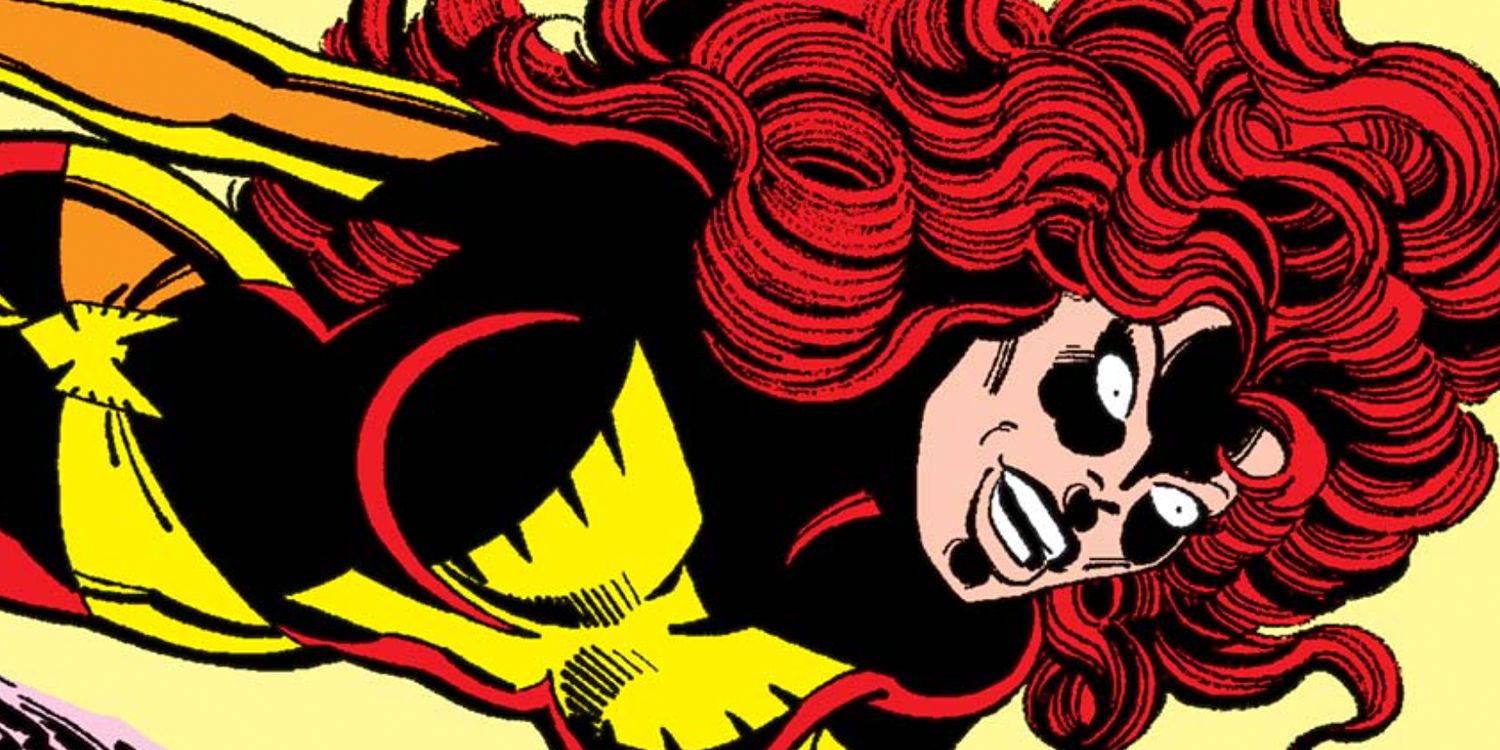
Charles Xavier’s guiding principle with the X-Men is largely centered on the idea of human potential and evolution. Mutants offer a glimpse at an exciting, evolutionary future for humanity. But more than that, the acceptance of mutants in society, and the coexistence between them and humans would be a great leap forward for humanity as a whole. The X-Men represent a future where humanity might finally overcome its own impulse to hate what it does not understand.
The Phoenix Force, however, offers a dark inversion of Xavier’s central idea, because it literally draws power from future life. The X-Men all fight and make sacrifices in the present so that the future might be a brighter place. But the Phoenix Force requires sustenance from the future in order to continue to exist in the present, highlighting its extremely vampiric qualities.
This is why deploying the Phoenix Force outside the Dark Phoenix Saga can veer into dangerous territory. While it makes for an awe-striking spectacle to see a character powered up by the Phoenix, the Force itself is utterly at odds with the philosophy that has made the X-Men such a remarkable team in comics. This speaks to the narrative power that the Phoenix Force has, because it is not simply a MacGuffin, but a being whose very existence is a morally-loaded one. There aren’t many of these in the Marvel Universe, and the moral questions that the Phoenix Force asks readers to consider inspire a type of reflection that many comics do not.
The Best Phoenix Host Is NO ONE.
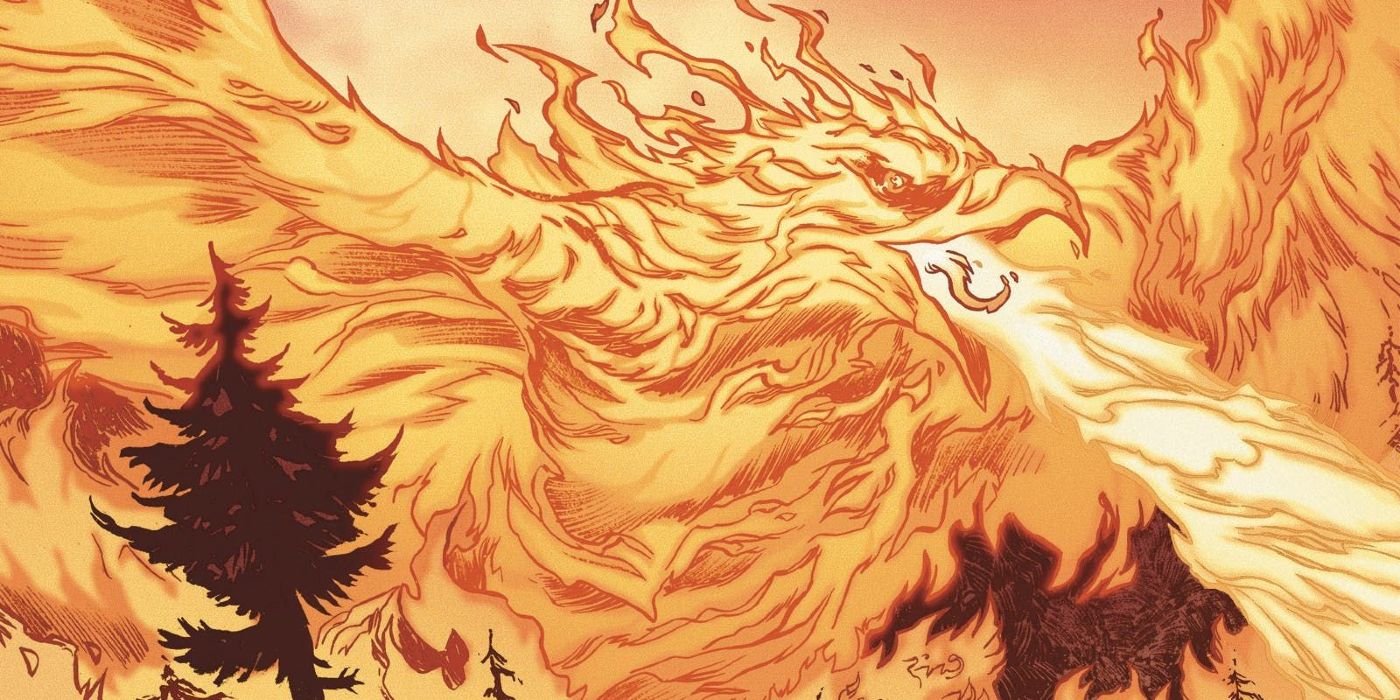
Jean Grey’s turn as the Dark Phoenix is one of the most utterly heartbreaking arcs in superhero comics. Her revival with the Phoenix Force made her briefly triumphant after seemingly dying in Uncanny X-Men #101, and it was uplifting to see her return to fight alongside her teammates (written by Chris Claremont, art by Dave Cockrum, inks by Frank Chiaramonte, letters by J. Costanza, colors by A. Yanchus). But the risks that come with the Phoenix Force are much too great, considering the amount of destruction that Jean wrought on the universe as the Dark Phoenix.
The Dark Phoenix Saga showed how even the most virtuous of heroes could become drunk on power, leading them to do things that would otherwise be unthinkable to them. What differentiates the Phoenix Force from other powerful things in the Marvel Universe is that the Force is not a tool that a character can simply acquire, use, and then discard, but an entity that latches onto its host. It is both a psychic and physical state that is consistent in its pattern of harm, on both the host and on the people around them. By envisioning power in this parasitic dynamic, Chris Claremont put forth a nightmarish portrait of the destructive cycle of life in the universe.
Ultimately, the Phoenix Force is more than a means for a character to become limitlessly powerful: it is a commentary on the destructive nature of power. What is so unique about it is that there is nothing in the Marvel Universe that is as much a meta-commentary on the superhero genre’s reliance on power to illustrate heroism. Where superheroes were once able to show inspiring acts of power, the Dark Phoenix Saga proved that power does not exist in a vacuum. As both the pure expression of the potential of life in the universe and a deeply destructive and cannibalistic entity, the Phoenix Force puts forth an idea that life, and the creation of it, is inherently destructive. To live is also to destroy.
The Phoenix Force requires its hosts to surrender control over not only their powers, but also their inhibitions. While this has sometimes provided cathartic release for certain characters, it ultimately points to another alarming reality: superheroes are not perfect. What makes so many characters in the Marvel Universe compelling to readers is their personal struggles to become better people, and this component of the person is always lost with the Phoenix Force. If anything, perhaps the greatest legacy of the Phoenix Force is its reminder that one’s actions, no matter how great or small, still have a ripple effect on the future.

